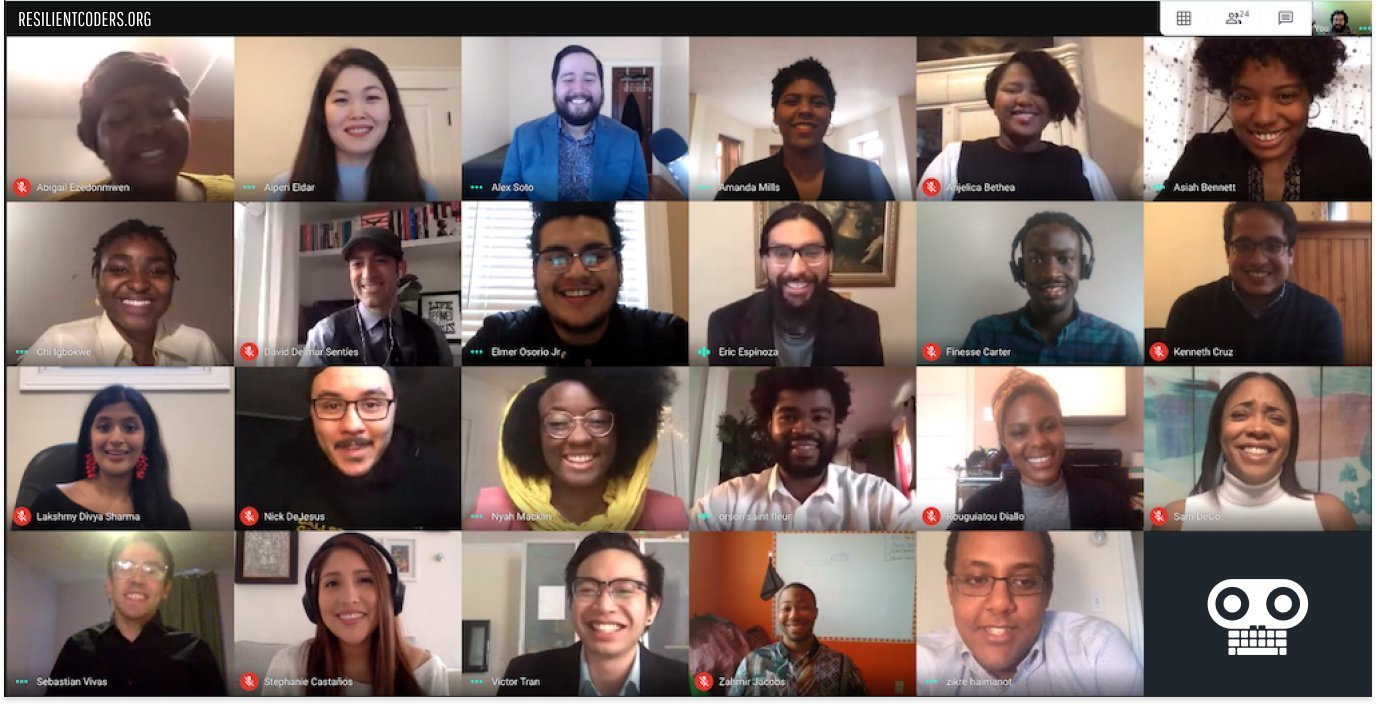Open-Source E-ink Laptop Project

Sunday, 25th April 2021, at 2:00PM EST
🎉 Welcomes 🎉
🧑🏿🤝🧑🏿🧑🤝🧑🧑🏽🤝🧑🏽🧑🏾🤝🧑🏾🧑🏼🤝🧑🏼🧑🏾🤝🧑🏼🧑🏽🤝🧑🏻🧑🏿🤝🧑🏻
🌎🌍🌏
🐧

Started about a year ago amidst the COVID-19 pandemic, the transition to remote-working, and the increasing amount of time we spend on our digital devices.
The goal of EI2030 is to promote healthier computing practices, particularly the use of non-emissive displays such as e-ink and connecting people who are interested in learning and discussion, thereby facilitating the exchange of ideas and collaboration.
Our community is open to everyone and consists of a broad mix of hardware hackers, health-tech enthusiasts, productivity hackers, gadget lovers, and entrepreneurs.

I’m a community organizer, educator, software engineer, hacktivist, and agent of social change.
My interests are in exploring community-building, social justice, education, and leveraging technology to address social problems.
In the past, I’ve worked as a labor rights organizer, a teacher, and I’m currently an Expert In Residence at Resilient Coders.

Alexander Soto
Boston, MA
(aka ”alexsotodev”)
Project Lead
Core Team
I'm an independent contractor- I provide tech support services to IT companies.
My hobby interests are in building technology (e.g. FOSS hardware & software) and making it easier to use and more accessible.
In the past, I have worked in technical support roles for IT companies in wireless networking, help desk, and hardware repair.
Giovanni Lostumbo
Chicago, IL
(aka ”initrd”)
Core Team

Manuel is responsible for various marketing and community management activities across the whole EI2030 initiative.
He's been an early adopter and big proponent of emerging technologies including electronic paper as well as for cryptocurrencies.
His work setup and station are designed around paperless eink devices. On his day job, Manuel works as an Account Executive at a German publishing house.
He has also been an IT Specialist and Network Administrator with the German government and the automotive industry with a stint in New York. He has also served as Marketing Manager at various startups.
Manuel Zeiler
Munich, Germany
(aka ”m10r-vc”)
Core Team



Our students spend 20 weeks with us, learning object-oriented programming principles, through the vehicle of full stack javascript; that's vanilla JS, React, Express, Node, and PostgreSQL.
Resilient Coders
Objectives
- Promote healthier computing practices.
- Create an open-source e-ink laptop and ecosystem.
- Unite and increase our numbers.
- Iterate, test ideas, document, and show our work.
- Create a crowdsource campaign after the successful creation of a minimum viable product.
- Bring the MVP to a manufacturer and build at scale.
Working Groups

Working Groups
- Led by one or two people as leads.
- Research focused or revolve around a deliverable.
- Defines a metric/cost for who the device is for.
- Working groups are time-boxed defined.
- A "template" provided for the working groups to start and self-organize.

Working Groups Contd.
- The working group documents its process in a designated website, forum, Github, a build log.
- Share resources/knowledge/material/monetary.
- Generate interest, share our work with others.
- Iterate, iterate and iterate.

PaperTerm


PaperTerm


PaperTerm


PaperTerm is a niche device with an e-paper-display and laptop form-factor device with a week of battery life (of regular use). PaperTerm is a microcontroller-based project used solely to connect to and run/interact with programs installed on remote computers (think along the lines of SSH/telnet, remote desktop, VNC, etc.). The combination of its limited scope and e-ink display is what will enable its vision of a “so long that I don’t have to think about it” battery life.

PaperTerm
Audience: This proposal, however, is for fellow enthusiasts to help define and document the end device’s goal and capabilities.
Members: @xorlof (lead), @scrunch. Looking for new members.
Contact: email is hello@paperterm.org or contact via discord.
URL: http://www.paperterm.org/
Hardware: TBD. Early prototypes will probably be ESP32 based with using the simple waveshare interface and 13.3 panel in a donor laptop body. Likely to eventually morph and move away from ESP32 to STM32 or Apollo MCUs with a custom EPD interface.

PaperTerm
You can help us figure out the key important areas for us to focus on. No special skills needed! If you like the sound of such a device, email us and join!
No required time commitment and no contribution is too small and no worries of all of this microcontroller-type talk go over your head. We need you!

PaperTerm
Looking For
Low-Power E-Paper OS


Low-Power

Low-Power

Low-Power

Low-Power

Objective: The goal of this project is to run an OS on an ultra-low-power CPU/MCU that can output a terminal or a window manager to an e-paper display.
Audience: low-voltage, proof of concept
Members: @scrunch, @alexsotodev open to new members, including after the project started.
Contact: giovanni.lostumbo@gmail.com
URL: https://discord.com/invite/nnxKnxh
https://github.com/EI2030/Low-power-E-Paper-OS 16
Hardware: Redboard Artemis, SAMD51 1, Dialog 14695 1, ESP32, STM32, other MCUs/MPUs with can be used, including ones with E-paper already connected, like M5Paper, or LILYGO® TTGO T5 2.
Low-Power

Porting Linux to the Ambiq Micro Apollo4
1. Determine system requirements of Linux kernel with single userspace apps
(eg. text editor and filesystem for saving docs)
2. Determine bootloaders in development for Ambiq Apollo3/4 & Cortex M4F
3. Examine the feasibility of porting vs. building from scratch.
Next Steps
Driving E-Ink Displays



Objective: Near term is to explore the different ways to drive an eink display, focusing on using a system on a chip with an integrated controller; i.MX7/8 and RK3566 family of microcontrollers.
In the long-term, we are interested in building an open-source external electrophoretic display controller enabling higher performance processors and flexibility with the implementation of the waveforms with eink devices.
Members: @alexsotodev, ZephRay Looking for members.
Contact: @alexsotodev, Discord
Hardware:
- i.MX7Dual 1: MCIMX7SABRE 2 from NXP.
- i.MX 8ULP 3: Color EPDC, expected to be released at the end of the year.
- RK3566 4: (Pending, Pine64 Quartz64 Model A release 3)
Driving E-Ink

Driving E-Ink

- We are converting the RK3566 schematics to KiCad.
- Creating a 3D printed laptop enclosure.
- Obtaining i.MX7Dual and SABRE board for testing
Looking for people with experience with mechanical engineering / CAD and Embedded Linux development experience.
Status & Looking for
Non-Emissive Displays



Non-Emissive Displays

The objective of this working group is to discuss non-emissive displays, mainly focusing on e-ink, RLCD, DES, and alternatives. The group will concentrate on creating prototypes and learning more about display physics. Research on non-emissive displays’ developments will be distilled and shared for current/future working groups.
Psychology and UX of e-ink



Psychology and UX of e-ink

The objective of this group is to investigate possible psychological benefits of e-ink. Many eink users anecdotally report such benefits when compared with their experience of LCD, OLED, or other types of display. For example, lower levels of screen/eye fatigue. Previous published work has not been resoundingly conclusive (e.g. Benedetto et al., 20139; Benedetto et al., 201410; Siegenthaler et al., 201211).
We will investigate for ourselves whether these anecdotally reported benefits amount to empirically verifiable and generalisable properties of eink displays. We will also be ideating and investigating ways to design the UX of eink devices to improve things like productivity and well-being through psychology!
State of the Ink
What we have done so far...

We are growing!
- We've had 250 members in our community!
- More people are viewing our forums, in particular the working groups.
- Continuously engaging people and communities in social media platforms, Twitter, Reddit.
Thank you for joining our community!


Laptop chassis
Name : Laptop Chassis
Objective: The objective of the group is to research, design, and create/remix a laptop chassis that can be the foundation for building an eink laptop and for current/future working groups. Preference will be for designs used with open-source software to enable the use of open-hardware—for example, Olimex TERES-I, VIA OpenBook, MNT Reform, and EOMA68.
Members: @alexsotodev, looking for members.
Contact: contact@alexsoto.dev or Discord
Looking for :
- Digital Fabrication
- DIY/Creatives/Modders
- FreeCAD, OpenSCAD

- Continue spreading the word and bringing more folks on board.
- Ramp-up state: revisit tools, forum, templates, Zulip/Loomio
- Building community, building relationships, building openly
- EI2030 Confererence, workshops, attending conferences, re-vamp of website/language
Next Steps

Thank you!


